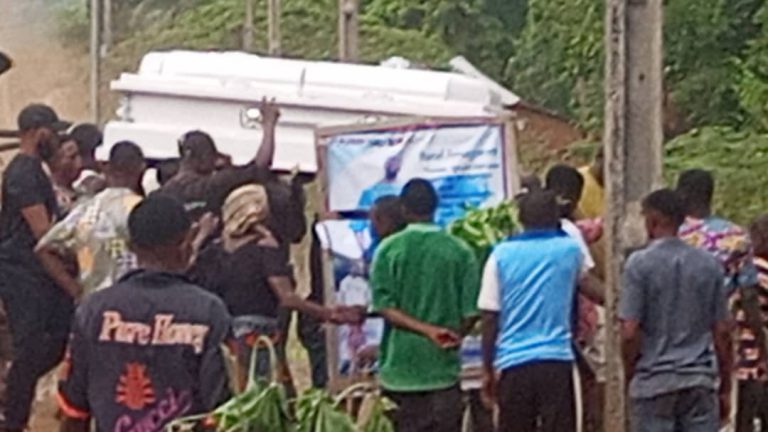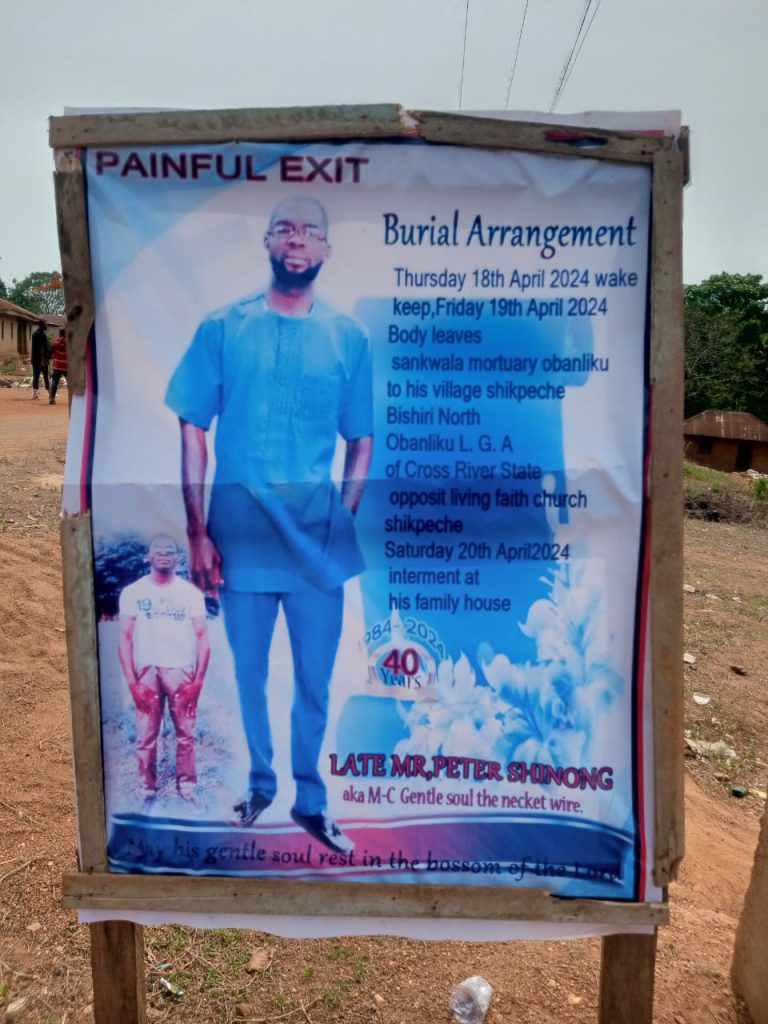
On April 20, 2024, tragedy struck Shikpeche, a serene community in Bishiri North, Obanliku Local Government Area of Cross River State. What began as a typical day of work ended in disaster for Peter Shinong and Emmanuel Ushikeh, two young men who lost their lives while engaged in illegal mining.
The two were part of a larger group hired to extract tourmaline, a highly sought-after gemstone prized for its industrial and healing uses. Using only basic tools, they dug a six-foot-deep pit that collapsed suddenly after an electric shock. While three of their colleagues were rescued, Peter and Emmanuel weren’t as fortunate one died before being pulled out, and the other succumbed to his injuries on the way to the hospital.
A community member lamented the unsafe conditions under which the miners worked. “They had no proper tools or safety precautions, just shovels and cutlasses,” he said. “They were lured by outsiders offering quick money, but it was a trap.”
This tragic incident adds to a growing number of fatalities in Nigeria’s unregulated mining sector. Over 65 people have reportedly died in similar collapses across Plateau, Taraba, and Adamawa States this year alone. Experts warn that without reforms, these numbers will only rise.
Environmental Destruction Amplifies
Illegal mining’s impact goes beyond human lives, leaving devastating scars on the environment. In Shikpeche, vast swaths of forest have been cleared to make way for mining, contributing to deforestation in a state once known for its rich forest reserves. Cross River State’s forest cover has shrunk drastically—from 7,920 square kilometers in 1991 to 6,102 square kilometers by 2008.
Lawrence Osong, Project Coordinator for the Africa Research Association Managing Development in Nigeria (ARADIN), highlighted the broader implications. “Deforestation here isn’t just about the trees. The rising temperatures in nearby Obudu Mountain Resort, which used to be cool, now reach 27°C regularly. Climate change is creeping in through these activities.”
Osong warned that illegal mining accelerates climate change by releasing methane and stripping the land of its ability to absorb carbon. The World Health Organization estimates that climate change could result in 250,000 additional deaths annually between 2030 and 2050 due to malnutrition, malaria, diarrhea, and heat stress.
Flouting Regulations, Ignoring Safety
Despite the Environmental Impact Assessment (EIA) Act of 1992 and the Mining Act of 2007 mandating strict assessments for mining operations, compliance remains minimal. Mining companies routinely bypass these requirements, operating without licenses and exploiting communities like Shikpeche.
“The companies in Shikpeche didn’t even pretend to follow the rules,” said a local source. “It’s pure exploitation masked as development.”
Initially, some community leaders supported the mining, swayed by promises of financial benefits. However, the deaths of Peter and Emmanuel spurred protests and a temporary suspension of operations. Even so, no compensation has been given to their families eight months after the tragedy.

Illegal Mining: A Statewide Problem
Illegal mining isn’t limited to Shikpeche. Seven local government areas in Cross River State, including Akampa, Biase, Boki, Obubra, Ikom, Yakurr, and Obanliku, host unregulated operations. Over 800 foreign miners have reportedly turned the forests into battle zones for precious minerals.
In August 2024, Governor Bassey Otu issued Executive Order No. 1, requiring community consent and environmental compliance for mining projects. Additionally, the state legislature passed the Green Economy Commission Bill to promote sustainable development.
Prince Paul Effiong, Chairman of the State Anti-Illegal Mining Taskforce, emphasized the urgency of addressing illegal mining. “These miners are thieves. They exploit our land, deceive our leaders, and endanger our communities. They don’t follow due process, and their activities bring insecurity, including kidnappings and assaults.”
Effiong also criticized some local chiefs and government officials for enabling illegal mining. “This issue involves people within the government and the community. There’s no way mining can begin in a community without the knowledge of its leaders,” he stated.
Calls for Action
Civil society organizations (CSOs) like the Partnership for Social and Environmental Development Initiative (P4SEDI) are raising awareness about the environmental and social costs of illegal mining.
Eme Okang, P4SEDI’s Executive Director, stressed that illegal mining worsens deforestation and greenhouse gas emissions, leaving the land barren and unfit for agriculture. “Trees sequester carbon and release oxygen. When we cut them down, we lose that balance, allowing methane and other harmful gases to pollute the atmosphere,” Okang explained.
She linked the rise in illegal mining to poverty and government neglect of the solid minerals sector, which pales in comparison to the attention given to oil and gas. “The federal government prioritizes oil and gas, which contributes 7-10% of GDP but dominates export earnings and government revenue. Meanwhile, solid minerals barely contribute 2%, despite Nigeria’s vast resources.”

Okang urged a comprehensive overhaul of the mining sector. “Until proper regulations are enforced, communities like Shikpeche will continue to suffer exploitation and environmental degradation.”
For more updates, join our WhatsApp channel: Click here.
Chronicles Reporters